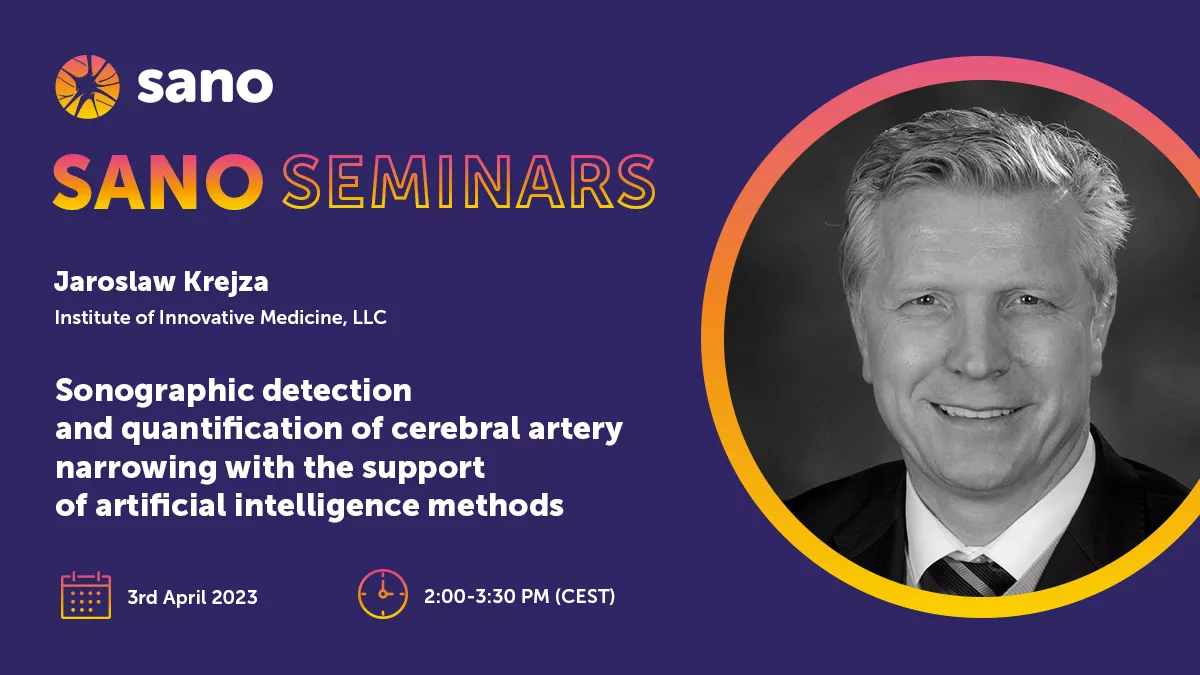
94. Sonographic detection and quantification of cerebral artery narrowing with the support of artificial intelligence methods
Jaroslaw Krejza – Institute of Innovative Medicine, LLC
Abstract
Morbidity and mortality rates of stroke in Poland are the highest among developed countries. Better survival can be achieved if preventive treatment is timely implemented. Asymptomatic carotid artery stenosis contributes to a large proportion of strokes. Also, the narrowing of major intracranial cerebral arteries, predominantly caused by subarachnoid haemorrhage-induced vasospasm contributes to morbidity and mortality. Early detection and quantification of the narrowing is crucial for implementing the preventive treatment, however, there is an unmet need for an efficient diagnostic approach. In this seminar, I will overview the methodology of transcranial colour-coded duplex sonography in combination with carotid ultrasound that can be used to detect and quantify cerebral artery narrowing. We will discuss the potential use of artificial intelligence methods to integrate sonographic data from multiple arteries to improve classification accuracy.
About the author
Jaroslaw Krejza graduated from the Medical University of Bialystok in 1990 and then worked at the University Radiology Department till 2003, where he obtained a PhD (1999), habilitated doctor (2002), and the title of full Professor (2006). In years 2003-2012 he worked at the University of Pennsylvania as a deputy head of the department of Neuroradiology, and in years 2012-2014 he worked as vice chairman of the department of Radiology of the University of Maryland Medical Center in Baltimore. He created his own Institute of Innovative Medicine in 2014. He was Editor in Chief of the Neuroradiology Journal in the years 2011-2021. The scientific achievements of Prof Krejza include over 120 publications in renowned international journals and textbooks, and numerous grants and awards. He received an award from the American Heart Society and an award from the Philadelphia College of Physicians. He was a member of the special emphasis panel of the American Cancer Institute NIH and a scientific and educational expert of the National Accreditation Association of the Kingdom of Saudi Arabia.

